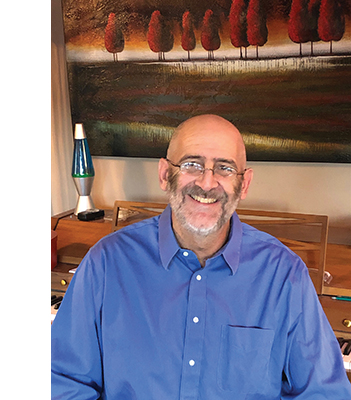This issue’s feature about high-ranking amputee officers in the British Navy is an unusual one for Amplitude. Rather than focusing on some aspect of how amputees live today, the article (which begins on page 26 of the print edition) describes the trials and triumphs of people who lost limbs in the 18th and 19th centuries.

But it’s surprisingly easy to connect the dots between European amputees of yore and modern Americans who are living with limb loss. Despite their high military rank, those old British seamen faced challenges that most of Amplitude’s readers will relate to. They had to refute misguided assumptions about their lack of capacity, deflect well-meaning but condescending expressions of sympathy, allay other people’s uneasiness with limb difference, and put up with rude stares and flat-out ignorance. They grappled with imperfect medical care and prosthetic limbs that were merely adequate, at best. And that’s to say nothing of the day-to-day energy (both physical and mental) they expended in adapting to limb loss.
In short, they lived in a culture that was as clueless about limb difference as our own society. But here’s what makes their story so illuminating, and so relevant to our own time and place: Within the subculture of the Royal Navy, limb loss wasn’t regarded as disabling. Far from being relegated to the margins, amputee officers were totally mainstream, as integral to the Navy’s operations as their physically normative peers. Dozens of these men led warships into battle at the height of the Napoleonic Wars, distinguishing themselves for their leadership skill, tactical acumen, strategic judgment, and boldness in battle.
Amputee officers did have to make some accommodations to meet the Royal Navy’s demands, but the Navy made equal accommodations to enable and empower limb-different officers. Ultimately, these individuals were defined and judged not by their disabilities but by their abilities. Few institutions in our current society can make the same claim.
In addition to taking a long, enlightening look at the past, this issue of Amplitude peeks into the future with a feature about smart sockets. This emerging form of technology has the potential to revolutionize prosthetic comfort and function, using sensors and flexible componentry to automatically adjust socket fit in response to changes in the residual limb. Although they’re currently in the prototype stage, smart sockets are making rapid progress and could enter the marketplace within a couple of years.
Because the holidays are nigh (already?), we have a list of gift-giving ideas submitted by you, our readers. And to help you pay for all the presents you’re wrapping up for your loved ones, we’re running a feature about how to find a financial advisor who’s got the know-how to support families with a limb-different member.
And just like that, another year slips into the past. From everyone in the Amplitude family, I’d like to wish all of our readers a peaceful and joyous holiday season.



